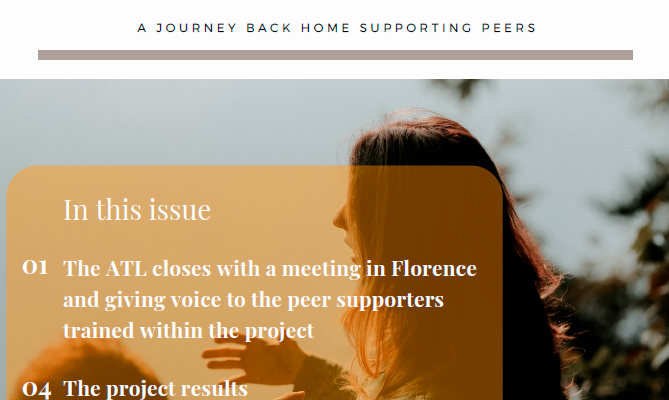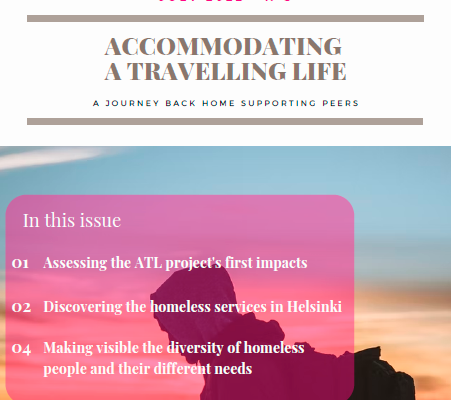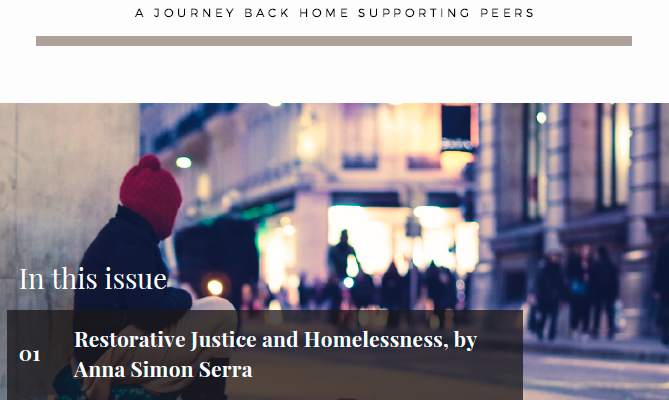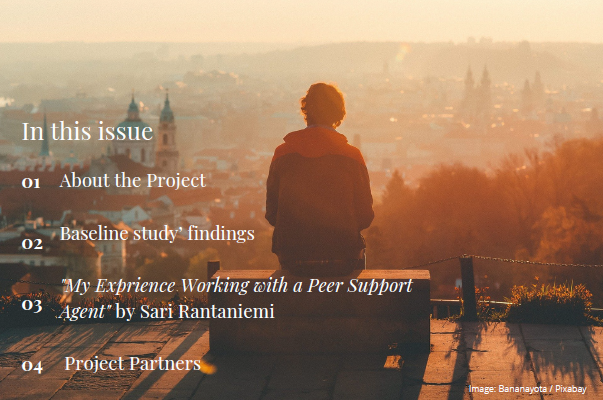
Context
Homelessness is the most extreme example of social exclusion in modern Western societies. Homeless people not only lack access to a stable housing. They also lack access to other basic needs, recognized as human rights, such as health services, employment or even a reasonably proper nutrition. Life on the streets is a constant struggle to find food and a safe place to spend the night. And, if this was not enough, homeless people are often subject to mockery, violence and exploitation. Those trying to get out of homelessness face multiple difficulties and barriers and have no one to turn to. Although it is a heterogeneous collective there are frequent common factors, like an untreated mental illness, an addiction, illegal status accompanied by low level of education or major language issues.
Organizations working in the field know only too well that winning and maintaining the trust of a homeless person- especially if she has been in this situation for an extended period of time- is one of the most difficult steps. At the same time, is critical to the effectiveness of the intervention process. It is very frequent that these people reject any offer of help addressed at their social inclusion going beyond small gestures, such as might be handing out cash to satisfy their immediate needs.
There is a latent need for innovative methods to conduct interventions, helping to establish relationships of trust between the ones offering help and the ones who need it, leading to a better communication and understanding between the parties involved and, ultimately, contributing to more people overcoming the problem of homelessness.
ATL Project
The project "Accommodating a Travelling Life" (ATL) is framed within the need to offer innovative and effective solutions to homeless people. With this project, we will help organisations working with this target group to carry out more effective interventions by involving people with first-hand experience in the intervention process. To this end, ATL introduces the Journey Certified Supporters (JCS) - peer supporters with lived experience of homelessness, advanced in their recovery process and trained in the ATL methodology.
Within the framework of the ATL project, a tailor-made training model has been designed based on the principles of the peer support methodology. It provides training to both practitioners and experts by experience to prepare the latter to become JCS. Comprehensive information and a set of effective training tools will help future JCSs to value their life experience and use it to help homeless people out of situations of extreme vulnerability and social exclusion. On the other hand, the ATL training programme for professionals can prepare them to offer tailor-made support and carry out interventions in coordination with JCSs.
The ATL model incorporates the restorative justice approach with the aim of contributing to the re-establishment of community ties and thus favouring reintegration. It approaches the recovery of homeless people from a respectful approach, based on listening and dialogue, which is non-judgmental and non-critical.
Objectives
New intervention model
Provide the professionals with intervention models offering tailor made solutions to challenges and individual needs of homeless people.
Quality Training
Offer persons with first-hand experience of homelessness quality training, to grow personally and help others, without denying their past.
Sustainable Employment
Create sustainable jobs for persons with a lived experience of homelessness.
Reinforcing social links
Facilitate reinforcing social links within the community, an essential step towards sustainable reintegration.
ATL TRAINING


UNIT 2: PEER SUPPORTER TRAINING, INVOLVEMENT AND WORKING STANDARDS

UNIT 3: MIXED PROFILE INTERVENTION TEAMS. SUPPORTING A PEER SUPPORTER

UNIT 4: PEER SUPPORT AND HOMELESSNESS

UNIT 5. MENTAL HEALTH AND RECOVERY

UNIT 6: HOMELESSNESS AND TRAUMA

UNIT 7: CREATING, MAINTAINING AND REPAIRING SOCIAL TIES. CONNECTING WITH THE COMMUNITY

UNIT 8: USING OWN LIFE EXPERIENCE TO HELP OTHERS

UNIT 9: PEER RELATIONSHIP
Newsletter
This section is dedicated to the ATL project newsletters
Enjoy the reading!




